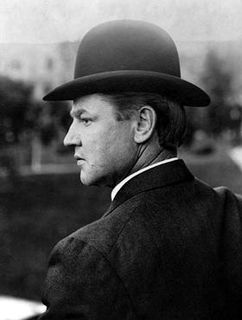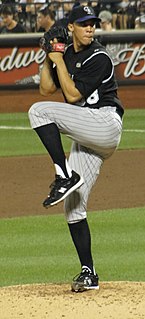A Quote by Mark Twain
As to the adjective: when in doubt, strike it out.
Quote Topics
Related Quotes
We are on strike, we, the men of the mind. We are on strike against self-immolation. We are on strike against the creed of unearned rewards and unrewarded duties. We are on strike against the dogma that the pursuit of one's happiness is evil. We are on strike against the doctrine that life is guilt.
What is an adjective? Nouns name the world. Verbs activate the names. Adjectives come from somewhere else. The word adjective (epitheton in Greek) is itself an adjective meaning 'placed on top', 'added', 'appended', 'foreign'. Adjectives seem fairly innocent additions, but look again. These small imported mechanisms are in charge of attaching everything in the world to its place in particularity. They are the latches of being.
I accept that friends of ours have decided that the President's non-strike has somehow impacted perceptions of us. But I believe they are dead wrong and I think the critics are dead wrong, and here's why. The President [Barack Obama] made his decision to strike. He announced his decision to strike publicly. And the purpose of the strike was to get the chemical weapons out of Syria. That's the purpose.
Take faith, for example. For many people in our world, the opposite of faith is doubt. The goal, then, within this understanding, is to eliminate doubt. But faith and doubt aren't opposites. Doubt is often a sign that your faith has a pulse, that it's alive and well and exploring and searching. Faith and doubt aren't opposites, they are, it turns out, excellent dance partners.
There are many different kinds of doubt. When we doubt the future, we call it worry. When doubt other people we call is suspicion. When we doubt ourselves we call it inferiority. When we doubt God we call it unbelief. When we doubt what we hear on television we call it intelligence! When we doubt everything we call it cynicism or skepticism.
Do you call it doubting to write down on a piece of paper that you doubt? If so, doubt has nothing to do with any serious business. But do not make believe; if pedantry has not eaten all the reality out of you, recognize, as you must, that there is much that you do not doubt, in the least. Now that which you do not at all doubt, you must and do regard as infallible, absolute truth.





































